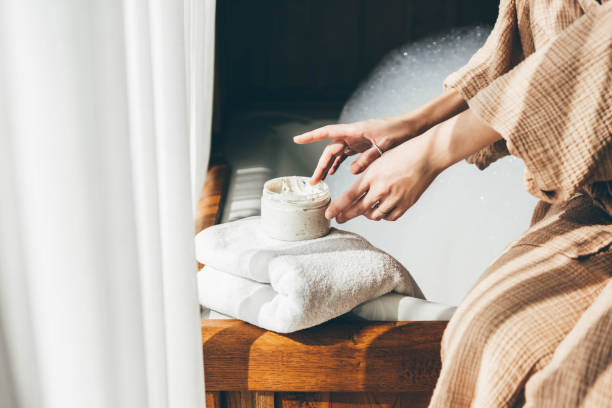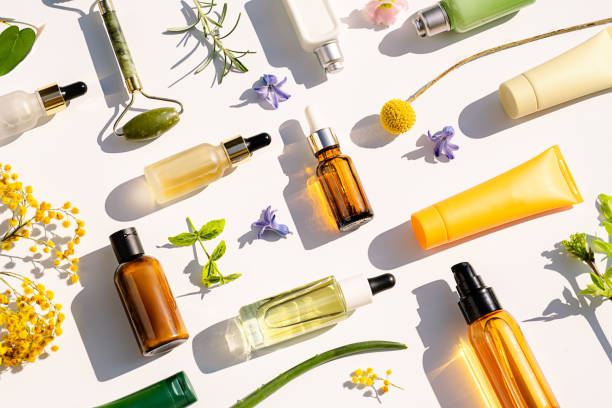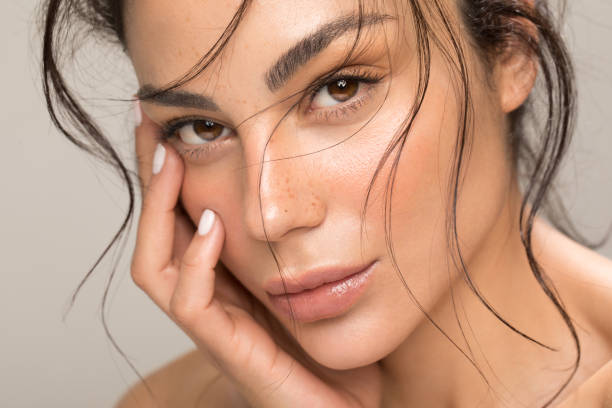
“Beautiful Skin Requires Commitment, Not a Miracle“
Maintaining healthy skin is a goal that many people want to achieve. Our skin, the largest organ of our body, plays a very important role in protecting us from external threats, regulating temperature, and allowing for the sensation of touch. To ensure your skin remains vibrant and resilient, it’s important to understand how to care for it properly. This guide will cover essential aspects of skin health, including skincare routines, nutrition, lifestyle habits, and common issues. It is said that:
“Nature gives you the face you have at twenty. It is up to you to merit the face you have at fifty.“
Unlock the Secrets: Understanding Your Skin
Before diving into skincare routines and products, it’s essential to understand the skin itself. The skin is composed of three main layers:
- Epidermis: The outermost layer and the very first layer of skin, which provides a barrier to protect underlying tissues.
- Dermis: Located beneath the epidermis, it contains blood vessels, nerves, and connective tissue, and is responsible for skin elasticity and strength.
- Hypodermis: The deepest layer, which consists of fat and connective tissues that cushion and insulate the body. It keeps the skin moisturized by producing oil from the glands present in the skin.
The Ultimate Skincare Routine: Your Path to Glowing Skin

- Cleansing: Proper cleansing removes dirt, oil, and impurities that accumulate on the skin. It is very important to use a gentle cleanser suited to your skin type (e.g., foaming cleansers for oily skin or cream-based cleansers for dry skin). Cleansing twice is generally recommended. To cleanse your skin, take lukewarm water and use the cleanser with the tip of your finger, massaging for at least 10 minutes for glowing skin.
- Exfoliation: Exfoliating helps to remove dead skin cells that can lead to clogged pores and dull skin. However, over-exfoliation can irritate the skin. Aim to exfoliate 1-2 times per week using products that contain gentle exfoliants, and to exfoliate your skin, massage gently for better skin.
- Moisturizing: Moisturizers help to lock in hydration and protect the skin’s barrier. Choose a moisturizer based on your skin type; for example, gel-based moisturizers are suitable for oily skin, while cream-based options are better for dry skin. Applying moisturizer after cleansing helps to seal in moisture and keep the skin hydrated.
- Targeted Treatments: Depending on your skin concerns, you may incorporate serums or treatments. Ingredients like retinoids, vitamin C, hyaluronic acid, and niacinamide can address various issues such as aging, dark spots, and hydration and also help overcome your acne and acne marks.
- Sun Protection: Sun exposure can lead to premature aging, hyperpigmentation, and skin cancer. Daily use of sunscreen with at least SPF 30 is crucial, even on cloudy days. Sunscreen should be applied every two hours when exposed to direct sunlight.
Feed Your Glow: Nutrition and Skin Health

It is said that “you are what you eat” so when you eat healthy, you look healthy, and the same applies to the skin: it glows differently. A balanced diet rich in vitamins and minerals can significantly impact skin appearance and function.
- Healthy Fats: Omega-3 and omega-6 fatty acids, found in fish, flaxseeds, and walnuts, help maintain skin barrier function and prevent dryness, keeping your skin glowing and moisturized.
- Hydration: Drinking plenty of water helps to maintain skin hydration and elasticity. Aim for at least 8 glasses a day, and increase intake if you’re physically active or in a hot climate. Drinking more water makes your skin shiny and keeps it hydrated.
- Protein: Adequate protein intake supports the production of collagen and elastin, proteins that contribute to skin firmness and elasticity. Include lean meats, legumes, and dairy products in your diet.
- Antioxidants: Foods rich in antioxidants, such as berries, nuts, and green leafy vegetables, help protect the skin from damage caused by free radicals. Antioxidants like vitamin C and E also play a role in reducing signs of aging and provide your skin the firmness it needs.
- Avoid Excessive Sugar and Processed Foods: As they can lead to inflammation and contribute to conditions like acne. Opt for whole, unprocessed foods to support overall skin health.
Healthy Habits for Radiant Skin: Beyond Skincare Products
- Stress Management: Chronic stress can negatively impact skin health, leading to conditions like acne or eczema and many others. Practices such as meditation and regular exercise can help manage stress levels.
- Sleep: Quality sleep is vital for skin repair and regeneration. Aim for 7-9 hours of uninterrupted sleep per night to help your skin recover from daily stressors and keep your skin healthy.
- Exercise: Regular physical activity improves circulation, which helps deliver essential nutrients to the skin. Additionally, exercise promotes a healthy glow by increasing blood flow and reducing stress.
Conquer Common Skin Issues: Effective Treatments You Need to Know

- Eczema: Eczema is a condition that causes red, itchy patches of skin. Opt for gentle, fragrance-free products and moisturize frequently. Managing stress and avoiding known triggers can also help control this condition.
- Acne: Acne is a common condition characterized by clogged pores and inflammation. Use non-comedogenic skincare products, and consider treatments with salicylic acid or benzoyl peroxide. If severe, consult a dermatologist for tailored treatment options and stay updated with your skin health issues.
- Rosacea: Rosacea is marked by redness and visible blood vessels. Avoid triggers such as spicy foods and hot beverages, and use products formulated for sensitive skin. Consult a dermatologist for better treatment.
- Aging: Fine lines and wrinkles are natural signs of aging. Incorporate products with retinoids and antioxidants into your routine. Additionally, maintaining a healthy lifestyle and protecting your skin from the sun can slow the aging process and can make your skin better.
Conclusion: “The Path to Flawless Skin“
Maintaining healthy skin involves a combination of proper skincare, a balanced diet, and healthy lifestyle choices. Understanding your skin’s needs, incorporating a consistent skincare routine, and addressing common issues proactively will contribute to a glowing and resilient complexion. Remember that every individual skin needs can vary, so it’s important to tailor your approach and seek professional advice if necessary. By prioritizing skin health, you can enjoy a vibrant, healthy appearance that reflects your overall health.

a very discriptive and informative article this website provides solution and treatment for every problem related to health i’m impressed!
Nicely written solved my problem!
👍
Unquestionably believe that which you said. Your favorite justification appeared to be on the net the simplest thing to be aware of. I say to you, I certainly get annoyed while people consider worries that they just do not know about. You managed to hit the nail upon the top and defined out the whole thing without having side effect , people can take a signal. Will probably be back to get more. Thanks
I found this post incredibly useful. The tips and insights you’ve shared are going to be very helpful for my work.
Incredible! This blog looks exactly like my old one! It’s on a totally different subject but it has pretty much the same layout and design. Superb choice of colors!
Generally I don’t read post on blogs, but I would like to say that this write-up very forced me to take a look at and do it! Your writing taste has been amazed me. Thank you, very great post.
Howdy! Do you use Twitter? I’d like to follow you if that would be okay. I’m absolutely enjoying your blog and look forward to new updates.
You helped me a lot by posting this article and I love what I’m learning.
Thank you for sharing this article with me. It helped me a lot and I love it.
The articles you write help me a lot and I like the topic
You’ve been great to me. Thank you!
Thank you for your help and this post. It’s been great.
Great content! Super high-quality! Keep it up!
Thank you for being of assistance to me. I really loved this article.
I’m so in love with this. You did a great job!!
You’ve the most impressive websites.
I want to thank you for your assistance and this post. It’s been great.